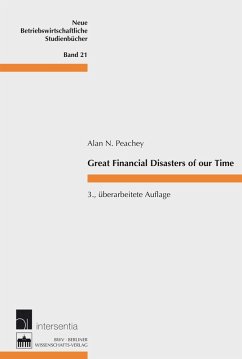Great financial disasters are not a new phenomenon. Probably the first well documented financial disaster was the so-called Tulipmania in the Netherlands in the 1630s, some 300 years before the Wall Street crash. At the end of the twentieth century a similar phenomenon occurred. This time it has taken the form of shares in companies trading on the Internet (i.e. new technology), the so-called dotcom companies. These events had one thing in common; they were spawned by the new technology of the time and fed by that one great human failing - the triumph of hope over reality, which some people would call simple greed. They illustrate also those other two great human failings - the inability to learn from history and forgetting/ignoring things one already knows. °°This book is intended to assist students of banking and finance. Its aim is to complement all those other textbooks that have been written on these subjects by illustrating how events can conspire to render all the wonderful theory quite worthless. When panics occur in the world financial markets banks and similar institutions can sometimes be caught unawares and find themselves victims of events that are beyond their control. However, in almost all the circumstances described in this book the signs of impending doom have usually been apparent for some time for anybody who wished to see them. The saying 'there are none so blind as those who do not wish to see' cannot be truer than under these circumstances.
Dieser Download kann aus rechtlichen Gründen nur mit Rechnungsadresse in A, B, BG, CY, CZ, D, DK, EW, E, FIN, F, GR, HR, H, IRL, I, LT, L, LR, M, NL, PL, P, R, S, SLO, SK ausgeliefert werden.









